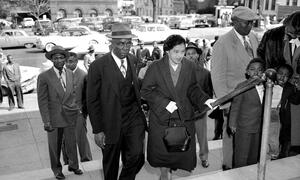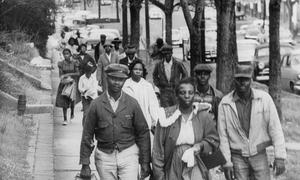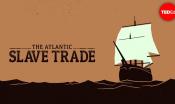text
Informational
This Land is Ours
“The Ponca’s challenge of the U.S. government marked a turning point on the long path of Indian resistance. Increasingly, after Standing Bear v. Cook, the fight for Native rights would shift from the battlefields to the courtrooms of the growing nation.”
August 9, 2017



